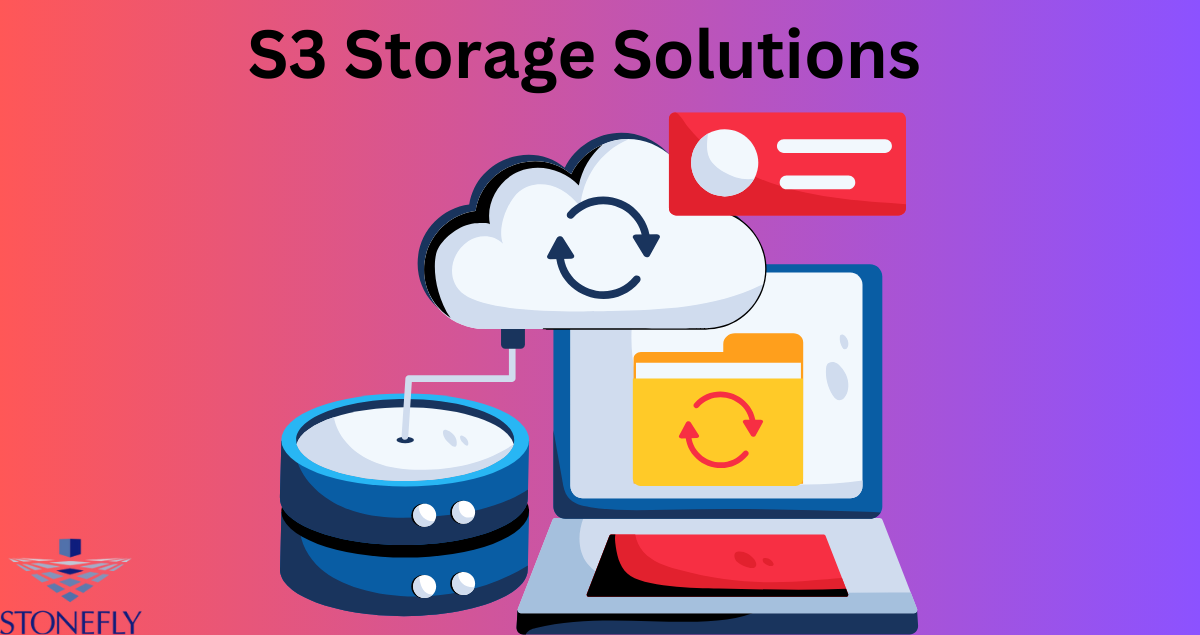Navigating the Future of Data with S3 Storage Solutions
In today’s fast-paced digital landscape, businesses are generating and handling more data than ever before. The need for efficient, scalable storage solutions is at an all-time high. Enter S3 Storage Solutions, a technology that is reshaping the way organizations manage their data. This blog post will explore the ins and outs of S3 storage, its benefits, challenges, and best practices for implementation, providing a comprehensive guide for businesses looking to enhance their data management strategies.
Understanding S3 Storage
S3 storage, commonly referred to as object storage, is a form of data storage designed to store vast amounts of unstructured data. It organizes data into objects, each containing the data itself, metadata, and a unique identifier. This structure allows for highly scalable and flexible data storage, which is crucial for businesses with growing data needs.
The key features of S3 Storage Solutions include its durability, availability, and ease of access. Unlike traditional storage solutions that rely on block or file storage, S3 provides a seamless interface that allows data to be accessed from anywhere, making it ideal for modern business operations that require real-time data processing and analytics.
Comparing S3 with Traditional Storage
Traditional storage solutions often involve complex hardware and software configurations, which can be costly and challenging to maintain. In contrast, S3 storage offers a more streamlined, cost-effective approach to data management. Its pay-as-you-go pricing model allows businesses to scale their storage needs without incurring unnecessary expenses, making it a preferred choice for many organizations.
Delving into S3 Features
Beyond basic storage capabilities, S3 solutions offer advanced features such as versioning, lifecycle policies, and cross-region replication. These features enhance data security and availability, ensuring that businesses can access their data whenever they need it, without fear of loss or corruption.
Benefits of S3 Storage
The advantages of S3 storage extend far beyond its scalability and flexibility. One of the most significant benefits is its cost-effectiveness. By eliminating the need for costly hardware and maintenance, businesses can significantly reduce their IT expenses while still meeting their storage requirements.
Scalability and Flexibility
With S3 storage, businesses can scale their storage capacity up or down as needed, without the restrictions typically associated with traditional storage solutions. This flexibility is particularly beneficial for companies experiencing rapid growth or seasonal fluctuations in data volume.
Enhanced Security Measures
Data security is a top priority for any organization, and S3 storage solutions offer robust security features to protect sensitive information. From encryption to access control policies, businesses can customize their security settings to suit their specific needs and ensure that their data remains safe from unauthorized access.
Real-World Applications
Many businesses have successfully leveraged S3 storage solutions to streamline their data management processes. For instance, a healthcare provider might use S3 storage to manage patient records securely and efficiently, while an e-commerce company might rely on it to store product images and transaction data.
Challenges and Solutions
Despite its many benefits, S3 storage does come with its own set of challenges. One of the most common issues businesses face is managing the costs associated with storing large volumes of data. However, with careful planning and the use of cost-management tools, organizations can keep their expenses in check.
Overcoming Security Concerns
While S3 storage offers robust security features, businesses must remain vigilant in protecting their data. Implementing best practices such as regular security audits and employing encryption can help mitigate potential risks and ensure the integrity of stored data.
Tools for Effective Management
There are several tools available to help businesses manage their S3 Storage effectively. From monitoring and analytics platforms to automation tools, these resources can help organizations optimize their storage usage, reduce costs, and enhance overall performance.
Best Practices for S3 Implementation
Integrating S3 storage into your business operations requires careful planning and execution. By following a few key guidelines, you can ensure a smooth transition and maximize the benefits of your new storage solution.
Optimizing Performance
To get the most out of your S3 storage, it’s important to optimize performance by using best practices such as organizing data into buckets, setting appropriate permissions, and regularly reviewing storage policies. These steps can help improve data retrieval times and reduce the risk of errors or data loss.
Cost Management Strategies
Managing costs is a critical aspect of any storage solution, and S3 is no exception. By implementing cost-saving measures such as data tiering and lifecycle policies, businesses can minimize expenses while still maintaining access to the data they need.
Ensuring Seamless Integration
For a seamless implementation, it’s crucial to ensure that your S3 storage solution integrates smoothly with your existing systems and applications. By conducting thorough testing and collaborating with experienced professionals, you can avoid potential pitfalls and achieve a successful deployment.
Conclusion
S3 storage solutions offer a powerful, flexible approach to data management that can greatly benefit businesses of all sizes. By understanding the key features, benefits, and challenges associated with this technology, organizations can make informed decisions about whether S3 is the right choice for their needs. With careful planning and the right strategies, companies can unlock the full potential of S3 storage and improve their overall data management capabilities.
FAQs
What is S3 storage, and how does it differ from traditional storage solutions?
S3 storage is a form of object storage that organizes data into objects, each containing the data itself, metadata, and a unique identifier. Unlike traditional storage solutions that rely on block or file storage, S3 provides a seamless interface that allows data to be accessed from anywhere.
What are the primary benefits of using S3 storage solutions?
The key benefits of S3 storage include scalability, cost-effectiveness, enhanced security measures, and flexibility. These advantages make it an ideal choice for businesses with growing data needs.
How can businesses manage the costs associated with S3 storage?
By implementing cost-saving measures such as data tiering, lifecycle policies, and using cost-management tools, businesses can minimize expenses while maintaining access to the data they need.
What security measures are available with S3 storage solutions?
S3 storage solutions offer robust security features such as encryption, access control policies, and regular security audits. These measures help protect sensitive information and ensure data integrity.
How can businesses ensure a successful implementation of S3 storage solutions?
For a seamless implementation, it’s essential to follow best practices such as optimizing performance, managing costs, and ensuring seamless integration with existing systems and applications. Collaborating with experienced professionals can also help avoid potential pitfalls and achieve a successful deployment.





